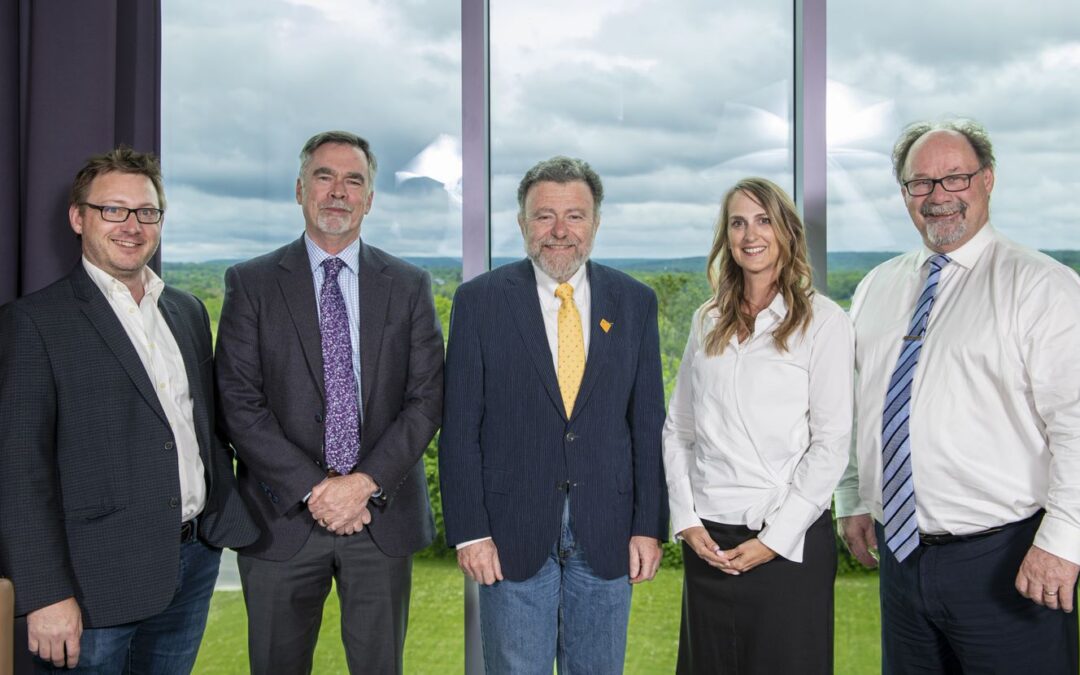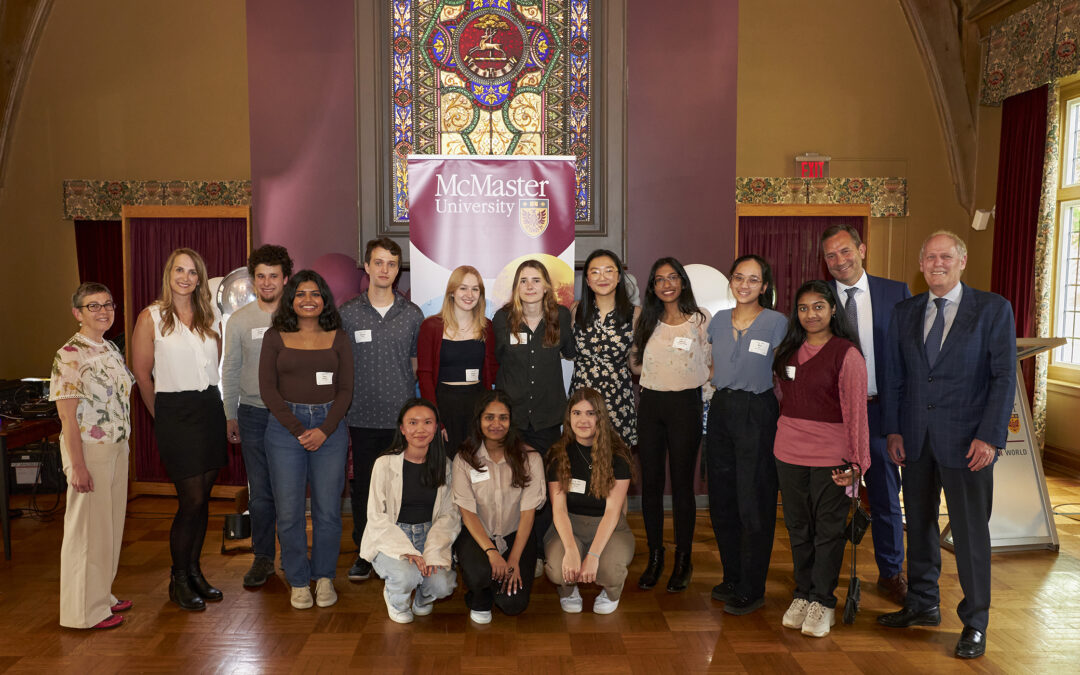Jun 9, 2023
Atomic Energy of Canada Limited (AECL), Canadian Nuclear Laboratories (CNL), and the Algonquins of Pikwakanagan First Nation (AOPFN) are pleased to announce that they have signed a historic long-term relationship agreement (LTRA) that formalizes relations between two of Canada’s leading nuclear organizations and this Algonquin First Nation. The agreement will establish a working group to serve as the basis for ongoing collaborations, and create a Neya Wabun (Guardian) Program that will establish a regular AOPFN monitoring presence at designated AECL sites, among other environmental, cultural and economic protection and promotion activities and programs.
The LTRA is the culmination of intensive efforts, negotiations and engagement to establish a productive relationship between the owner and operator of Canada’s national nuclear laboratories and the AOPFN, built on mutual respect and understanding, and cultivated through ongoing opportunities for dialogue and participation. It also resolves and addresses key areas of concern identified by the AOPFN, including environmental protection, radioactive waste management, cultural protection and promotion, and, the pursuit of collaborative economic and business opportunities.
“Pikwakanagan now has a significant say in their operations, incorporating traditional knowledge and values while protecting Algonquin Rights and the environment. Responsible and modernized management of existing onsite radioactive waste will be ensured, and importation of low-level radioactive waste will be limited. Given the reality of operations at CNL/AECL, this agreement is the best path forward as we seek to protect mother earth and ensure the safety of future generations.” Chief Greg Sarazin
“This is a historic milestone in our relationship with the Algonquins of Pikwakanagan,” remarked Fred Dermarkar, President and CEO of Atomic Energy of Canada Limited. “Reconciliation is a journey – and the long-term relationship agreement between AOPFN, AECL and CNL is an important step in healing as well as building trust, founded on transparency and mutual respect. We look forward to working collaboratively together in the future.”
“I want to express my sincere thanks and appreciation to the Algonquins of Pikwakanagan for putting their trust in CNL by entering into this long-term relationship agreement,” commented Joe McBrearty, CNL President and CEO. “At CNL, we believe that the inclusion of Indigenous knowledge into our projects and across all of our operations will help to improve the way we do our work, and to build understanding between CNL staff and Indigenous People. That is at the heart of this agreement and CNL’s Reconciliation Action Plan, and I am incredibly excited to be working together with AECL and the AOPFN towards a shared vision for the sites that we manage.”
Under terms of the agreement, an LTRA working group featuring representation from all three parties will be stood up to facilitate ongoing engagements and collaboration between the organizations. This is in addition to the creation of what will be known as the ‘Neya Wabun Guardian Program,’ which will establish a regular presence of AOPFN Guardians at CNL operations and AECL sites within the territory. The Neya Wabun program will provide AOPFN with the opportunity to monitor, and enable corresponding reporting back to the AOPFN. Through these ongoing engagements AECL and CNL hope to continue to maintain trust with AOPFN.
Another key focus of the LTRA is one of CNL’s major environmental remediation projects, the Near Surface Disposal Facility (NSDF) project, which would establish a modern engineered disposal facility for low-level radioactive waste at the Chalk River Laboratories campus designed to replace temporary storage, and dispose of legacy contaminated soils and aging infrastructure. The proposed project is currently under review by the Canadian Nuclear Safety Commission (CNSC) and is subject to federal assessment, a process which has been underway since 2017, under the Canadian Environmental Assessment Act.
Since 2020, AECL and CNL have participated in extensive engagements with the AOPFN. As a direct result of this process, CNL has made improvements to the project to address concerns raised through these engagements. With those changes in place and other AOPFN conditions and commitments met by CNL, the organizations have reached agreement on the NSDF project, and the AOPFN will provide its consent to CNL and the Canadian Nuclear Safety Commission (CNSC) to move forward with the construction of the proposed facility.

Jun 9, 2023
Atomic Energy of Canada Limited (AECL), Canada’s nuclear Crown corporation, and Canadian Nuclear Laboratories (CNL), Canada’s premier nuclear science and technology laboratory, are pleased to announce that they have signed a Memorandum of Understanding (MOU) with the University of New Brunswick (UNB) to pursue collaborative research opportunities. The MOU shows continued momentum for AECL and CNL in their efforts to develop a partnership network with Canada’s academic community, and builds on what has been an already close relationship with one of the country’s leading universities.
That relationship includes the delivery of research conducted in partnership with UNB’s Centre for Nuclear Energy Research (CNER). Last year, this ongoing collaboration culminated in the signing of a partnership agreement to pursue commercial opportunities in the nuclear power industry. This new MOU is designed to nurture even closer relations with UNB’s research community, enable knowledge mobilization, spur innovation and the development of intellectual property, and to provide solutions that address national and industry challenges.
“CNL, AECL and the University of New Brunswick have a long and rich history of collaboration that includes the development of innovative technologies and the delivery of operational support services,” commented Dr. Jeff Griffin, CNL’s Vice-President of Science and Technology. “This agreement will bring our organizations even closer together, and better leverage our existing capabilities to explore new areas of research, while expanding professional development opportunities for our personnel and students. Overall, we are excited to build on what has been a productive relationship with a long-time, trusted partner.”
“As we drive nuclear innovation for Canada, it is critical that we collaborate with Canadian universities and research organizations in order to best leverage our collective expertise and capabilities in Canada,” said Dr. Amy Gottschling, AECL’s Vice-President of Science, Technology and Commercial Oversight. “Our partnership with the University of New Brunswick is doing just that, and builds on a solid foundation of shared critical expertise in nuclear research and technology development.”
“Under the direction of Dr. William Cook, UNB’s CNER has established a fruitful partnership with CNL and AECL,” said Dr. David MaGee, UNB vice-president (research). “This partnership has already better enabled experts at UNB to contribute their knowledge to Canada’s energy production landscape. This MOU will open even broader dialogues and opportunities for researchers at UNB to play an active role in Canada’s energy landscape.”
Under terms of the agreement, the parties will explore research within defined focus areas that leverage each partner’s unique expertise and specialized facilities, including cyber security, hydrogen, medical isotopes, and small modular reactors, among other areas. The organizations will also seek out professional development opportunities within the scope of work, with the goal of offering richer, more dynamic learning experiences for their nuclear scientists, engineers, students and technical professionals. As Canada’s national nuclear laboratory, the Chalk River Laboratories is home to a wide range of advanced nuclear facilities. However, CNL also maintains facilities in close proximity to UNB, which includes its National Innovation Centre for Cybersecurity in Fredericton, New Brunswick.
As in other recent agreements, the MOU with UNB aligns with CNL’s corporate strategy, Vision 2030, which was launched last year, and which identifies what CNL views as its central role within the future Canadian nuclear landscape. Serving as a national resource to all levels of government, the nuclear industry, the broader private sector and the academic community, CNL aims to work in concert with other organizations to help advance innovative Canadian products and services towards deployment, including carbon-free energy, cancer treatments and other therapies, non-proliferation technologies and waste management solutions.

May 15, 2023
McMaster University, Atomic Energy of Canada Limited (AECL) and Canadian Nuclear Laboratories (CNL) have launched a new program to enrich learning and real-world experience in nuclear research for McMaster undergraduate students.
The CNL Nuclear Undergraduate Research Experience program provides funding to allow students enrolled in Level II or above in the Faculties of Engineering and Science to develop research and technical skills in the nuclear field.
The program is part of the partnership established last year between McMaster, CNL and AECL to advance nuclear research, education and training. With the global recognition of nuclear as a clean energy source to be implemented in the fight against climate change, the demand for an experience-skilled workforce is expected to grow significantly. Programs to develop talent will help meet this challenge.
As part of the eight-week program, students will be paired with a CNL employee for mentorship opportunities and for guidance on their research projects. Research projects will focus on health, safety and security, energy and the environment, including but not limited to research in small modular reactors, hydrogen, materials characterization, medical isotopes and radiochemistry. Additionally, participants will experience two weeks of learning, including hands-on research, at Canadian Nuclear Laboratories located at the Chalk River site or at other AECL sites managed by CNL.
The Chalk River Laboratories is the largest single complex among Canada’s science and technology infrastructure. Students enrolled in the program will have access to cutting-edge technologies housed within 50+ nuclear facilities and laboratories, which use nuclear science and technologies to advance research and applications in clean energy and the environment, health sciences, safety and security.
The first cohort of the program includes seven students from the Faculty of Science and five students from the Faculty of Engineering.
Dave Tucker, McMaster’s Assistant Vice-President, Nuclear says this opportunity to work with such visionary partners will have a significant impact on the talent pipeline for the nuclear industry.
“CNL and AECL are world leaders in nuclear research and innovation, and this investment is a testament to their continued leadership in ensuring Canada’s nuclear sector remains competitive on a global stage,” he says. “I salute them on their foresight and for creating pathways for our talented and passionate students – the next generation of nuclear experts – to advance discoveries in nuclear medicine, materials, safety and technology.”
“As Canada continues to invest in nuclear science and technology to support our clean energy future, the next generation is pivotal in driving everything from research and development to design and planning,” said Dr. Jeff Griffin, CNL’s Vice-President of Science and Technology. “McMaster University students will contribute to this innovation and we are committed to helping them build their capabilities and expertise as well as support them as they determine their career paths.”
“I am most excited about the novel student experience that McMaster and CNL are creating with this program”, said Amy Gottschling, Vice-President of Science, Technology and Commercial Oversight at AECL. “Our future is in the hands of young bright minds like the students at McMaster and I have no doubt they will offer insights and benefits that will help to advance research and technologies in nuclear. We welcome them to the Chalk River Laboratories and wish them a wonderful, and personally impactful experience.”


